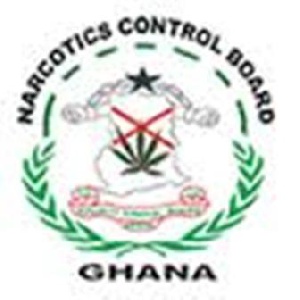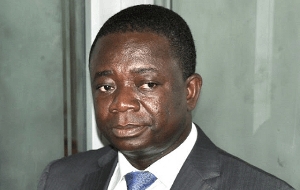- Home - News
- TWI News | TV
- Polls
- Year In Review
- News Archive
- Crime & Punishment
- Politics
- Regional
- Editorial
- Health
- Ghanaians Abroad
- Tabloid
- Africa
- Religion
- Election 2020
- Coronavirus
- News Videos | TV
- Photo Archives
- News Headlines
- Press Release
General News of Tuesday, 1 October 2019
Source: ghananewsagency.org
Don’t extend your Christian kindness to the airport - NACOB official
Christians have been advised against extending kindness to people when travelling from any airport as they could be used as carriers by drug traffickers unknowingly.
Mr Jeremiah Joel Ghartey of the Narcotic Control Board (NACOB)’s Education Unit, says, “Don’t accept to help anyone with his luggage or anything at the airport, let them carry their things by themselves, doing so can land you in prison for years”.
Mr Ghartey gave the advice over the weekend when he educated congregants of the Presbyterian Church of Ghana, Redemption Congregation at Tema Community Nine on "managing self at the airport, and drug abuse,” among others.
He added that prospective travellers must also desist from helping strangers in wheelchair or people carrying babies as drug barons sometimes used those circumstances to draw sympathy and as a channel to get unsuspecting people to carry drugs for them.
He gave instances where a pastor accepted lollipops from a woman to be delivered to children in Ghana, only for it to be detected at the airport on arrival that he had been used to carry drugs without his knowledge.
Mr Ghartey said to prevent the temptation of helping a friend or unknown person, travellers must wrap all their luggage in an airport luggage wrapper adding that people must also stop making themselves vulnerable by putting church, school and work stickers on their vehicles and other items.
Touching on the new trend of drug usage among the youth, students, and young adults, he indicated that to outsmart their parents and the public, they did not smoke the marijuana but now brew the dry leaves as beverage.
“The children now use the leaves as tea leaves so when you meet them in the kitchen preparing it, you will think it is just tea. You see them blending green leaves while they put dandelion on the counter to deceive you,” he said.
According to him, others also crushed the seeds and mixed it with their pomade which when smeared in their hair, enter the brain and body as though they had smoked it, adding that alcohol laced with marijuana popularly known as “under” was the order of the day.
He urged parents to educate their children against accepting biscuits and toffees from people as some persons were now spiking them with “wee”.
He said most young people take out the tobacco in cigarettes and put it under their tongues for intoxication.
He cautioned against the inhaling of flavoured smoke from Sheesha with the belief that because of the aroma, it was safer than cigarette or marijuana explaining that inhaling it for an hour was equivalent to smoking between 100 and 200 sticks of cigarette.
Mr Ghartey also observed that electronic cigarette which also had many side effects was also in vogue.
"Others also abused tramadol, valium, cough mixtures and inhalants such as shoe maker’s glue, and fuel lacquer thinner, among others for intoxication," he said.
He urged parents to draw closer to their children in order to follow changes in lifestyle and behaviours.
" When you get closer to them, you will know when they start getting hooked to drugs. Some of the physical evidence of drug use are constant praying of perfume, use of mouth sprays, changes in behaviour, school truancy, dismissal from school, excessive friendship and not been able to differentiate between the taste of sugar and salt, among others, "
Reverend Kwadwo Osei-Bonsu, Minister-in-charge, Presbyterian Church of Ghana, Redemption Congregation, told the Ghana News Agency that education forms part of the church’s initiative to teach the youth about substance abuse under the umbrella of the Blue Cross Society, the anti-drug group of the PCG.
Rev Osei-Bonsu added that it was worrying that the youth of today did not fear the use of drugs as some of them depended on them to boost learning noting that annually, the church used its platform to sensitize both parents and the children on the dangers and effects of abusing medicines and using illicit drugs.











